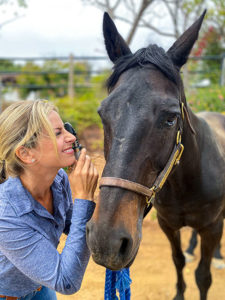Nebraska’s Third County Confirmed With VSV

Following the nation’s first VSV case in 2020, confirmed April 13 in Dona Ana County, New Mexico, three Nebraska counties were confirmed with the disease beginning on June 24 in Buffalo County:
- Buffalo (3 confirmed positive premises that have been released from quarantine);
- Gage (1 confirmed positive premises); and
- Johnson (1 confirmed positive premises that has been released from quarantine).
Premises with confirmed positive and suspect cases are quarantined and monitored by veterinarians for at least 14 days from the onset of lesions in the last animal affected.
VS 101
Vesicular stomatitis virus can cause blisters and sores in the mouth and on the tongue, muzzle, teats, or hooves of horses, cattle, swine, sheep, goats, llamas, and a number of other animals. Lesions usually heal in two or three weeks
Create a free account with TheHorse.com to view this content.
TheHorse.com is home to thousands of free articles about horse health care. In order to access some of our exclusive free content, you must be signed into TheHorse.com.
Start your free account today!
Already have an account?
and continue reading.
Related Articles
Stay on top of the most recent Horse Health news with


















